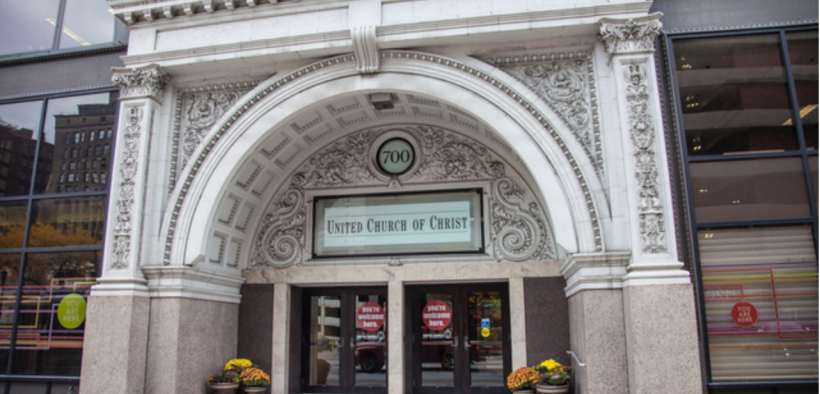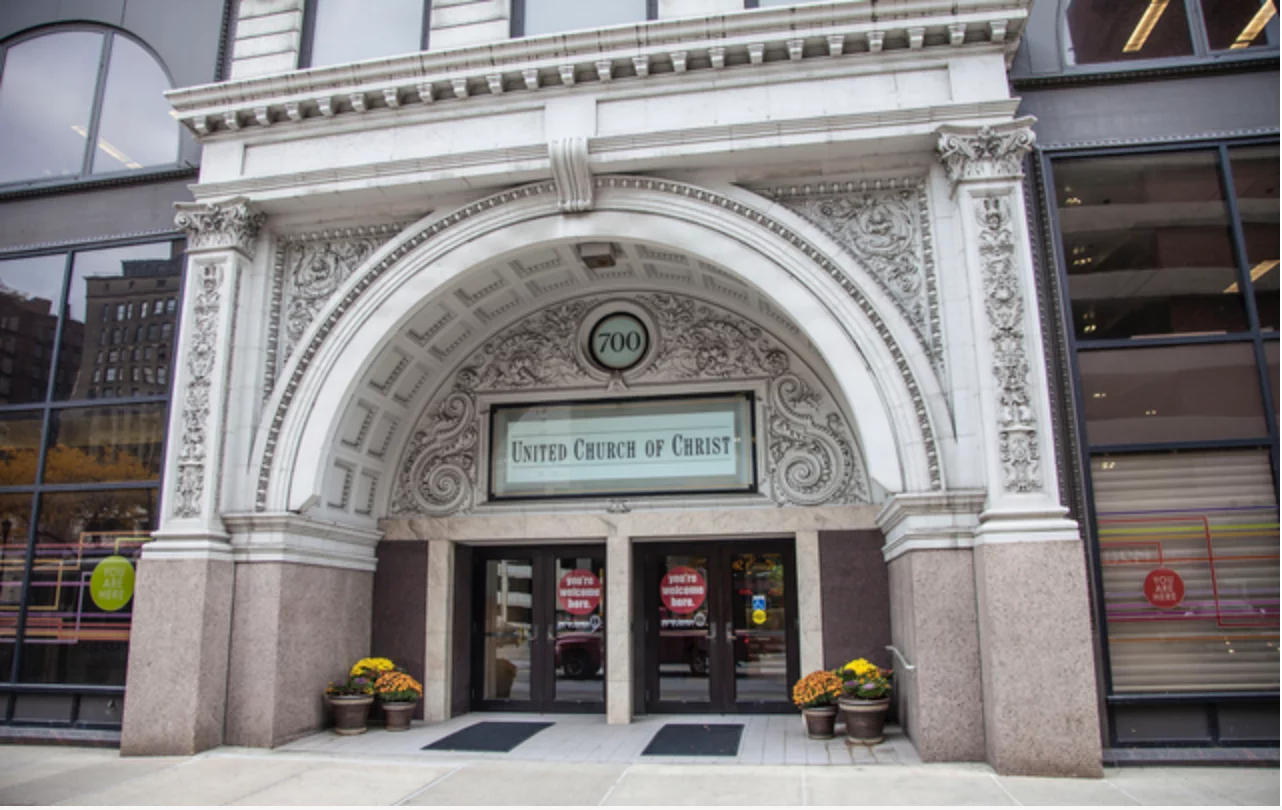United Church of Christ to Sell Cleveland Headquarters

Editor’s Note: This article was originally published at The Institute on Religion & Democracy’s blog Juicy Ecumenism. It is reprinted with permission.

In a sign of declining staff and resources, one of the original “seven sisters” of mainline Protestantism in the United States is preparing to sell its Cleveland, Ohio, denominational headquarters.
The United Church of Christ (UCC) is a once-influential denomination that boasted membership in the millions. It has been in a state of uninterrupted decline since its 1957 founding as a merger of the Evangelical and Reformed Church and the Congregational Christian Churches.
The denomination relocated its nationwide organization, known as the National Setting, from New York City to Cleveland in 1990 in an effort to both reduce expenses and locate closer to the bulk of church membership.
The church has listed that nine-story, 120,000-square-foot building for $7 million. Plans are in place to move staff to a single floor of an office building half a mile away, plus basement space for archived materials.
“Making this move saves the National Setting hundreds of thousands of dollars a year by leasing one floor rather than maintaining a nine-story building that once housed 330 employees,” UCC General Minister and President Dorhauer said in an announcement from the denomination’s official mouthpiece. Prior to COVID-19 restrictions, the National Setting had planned to redesign the space to accommodate 117 employees.
UCC officials previously planned to sell the headquarters building in 2015 and lease back space as part of a 20-year agreement with a Georgia-based property management firm. That sale eventually fell through.
The denomination’s reach and influence have been significantly curtailed: the 802,256 person membership has rapidly shrunk in recent years. In 2016 a UCC internal report forecast a further 80 percent decline in the following 30 years, dropping a denomination that once was a spiritual home to in excess of 2.1 million U.S. Christians down to a predicted 200,000 members in 2045.
Access to MinistryWatch content is free. However, we hope you will support our work with your prayers and financial gifts. To make a donation, click here.
In 2016, denominational officials announced staffing changes during a UCC Board of Directors meeting. Two-thirds of national staff positions were eliminated in the prior 16 years: a decrease from more than 300 in 2000 to just over 100 in 2016. Dorhauer warned that year of “multiple financial challenges that could impact the well-being of the national setting.”
While the denomination traces its origins to the puritans of the Massachusetts Bay Colony, its spiritual antecedents would likely not recognize it today. The UCC is among the most theologically liberal church bodies, and also embraces political activism on the Left, including anti-Israel causes.
The recent UCC General Synod that met virtually in July adopted resolutions calling upon local churches to “ritualize environmental grief”, advocate for a ban on conversion or reparative therapy, and even pandered to a fringe Hawaiian separatist organization. General Synod has a history of uniquely condemning Israel: in 2015 it voted overwhelmingly to divest from companies conducting business in “Israel-occupied Palestinian territories” and boycott products made in those territories.



